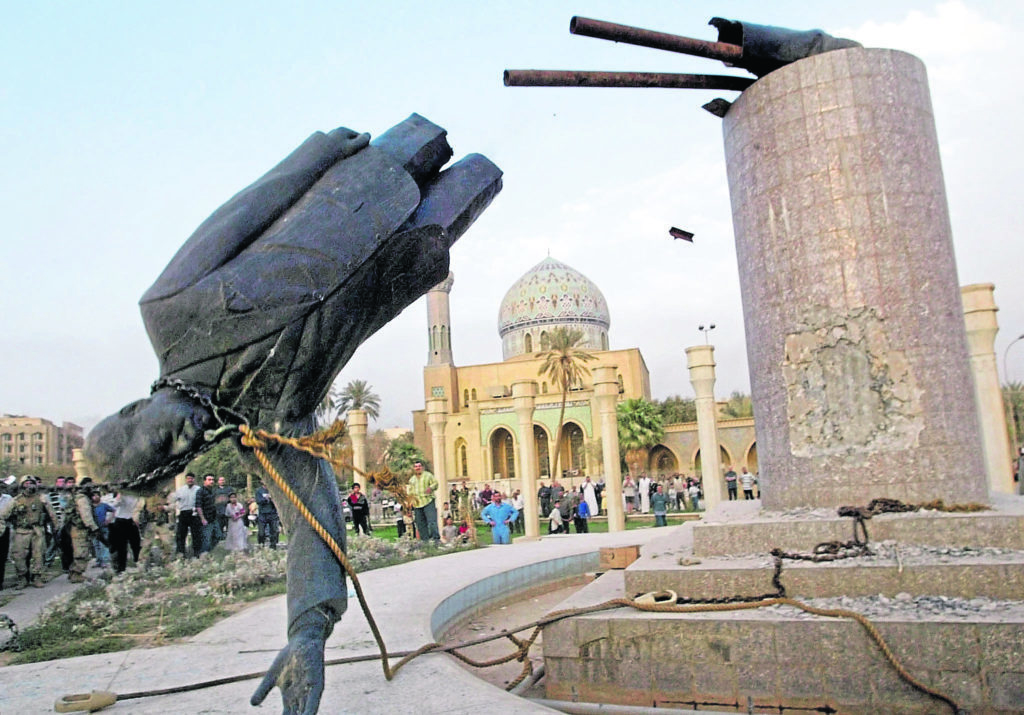
With output of around 4.4 million barrels per day (as of March 2018), Iraq is the second largest oil producer in OPEC after Saudi Arabia, and holds the world’s fifth largest proven crude oil reserves.
Yet, investment in the oil and gas fields and infrastructure in Iraq has been constrained by years of regional conflict and up until recently a downward trajectory in oil price, leaving many fields underdeveloped and new discoveries unexploited.
While Iraq’s neighbours may be taking the headlines at the moment – following Donald Trump’s decision to unilaterally withdraw from the Iran nuclear deal and the ongoing conflicts in Syria and Yemen – a number of key political events since the Iraqi federal government’s victory over Islamic State (IS) in December 2017 look set to shape the future of the country and its vital oil industry.
Most recently, the Sadrist party, led by populist cleric Muqtada al-Sadr, has claimed a surprise victory in the Iraqi federal elections. A poor turnout of less than 45% was equally surprising given the groundswell of criticism from the people of Iraq of systemic corruption and a failure of oil revenue to trickle down to the people.
While the Sadrists won the majority of votes, due to the nature of the proportional representation voting system in Iraq such a victory does not translate to a majority of seats in the 329-member parliament. The election result will usher in several months of negotiations for a government to be formed and a prime minister appointed.
It is not yet clear how the new coalition will reshape Iraq’s relationship with the US and Iran, but the escalating tension between the two is likely to lead to a period of uncertainty for investors in the country, in particular international oil and gas companies.
Another challenge of the relationship is that with the semi-autonomous region of Kurdistan, in northern Iraq, and in particular the sharing of revenue from oil and gas exports from the region.
A major failing of past governments has been the inability to ratify a nationwide oil and gas law. The subject of oil and gas rights in Iraq (more particularly, who has the authority to grant rights to produce oil and gas) has been hotly disputed since the enactment of the Iraqi Constitution in 2005.
The ensuing confusion allowed the Kurdish regional government to seize the initiative and grant numerous production sharing contracts to international oil companies, despite intense and sometimes litigious objections from the federal government of Iraq.
One only need look at the list of the oil companies present in Kurdistan, including US heavyweights ExxonMobil and Chevron, Spain’s Repsol and Russian companies Gazprom and Rosneft, to appreciate that the region represents an attractive investment proposition with comparatively generous terms compared with the risk service contracts offered by the Ministry of Oil in Baghdad.
However, the relative stability enjoyed by the Kurdistan region of Iraq was upset significantly by the decision by Kurdistan’s government to hold a referendum in 2017 on Kurdish independence from Iraq. While there was an overwhelming will of the people to form an independent nation, the vote had no legal effect and federal Iraq moved swiftly to assert its authority.
Firstly, domestic flights were banned from landing in landlocked Kurdistan and then Iraqi forces and government-backed militia reasserted control of strategically important Kirkuk, and has since entered into an agreement with BP to boost output capacity from the oilfields in the Kirkuk region. The Kurdish government had occupied Kirkuk since 2014.
With the reannexation of Kirkuk by Baghdad, Kurdistan’s oil output has almost halved overnight, and with it the revenue from that field. The full impact of the subsequent squeeze on Kurdistan’s budget and public spending is not yet clear, but outbreaks of violence in the region are becoming more common and investor confidence is low.
In a move to increase foreign investment in the Iraqi upstream oil and gas sector, this April saw the Iraqi Ministry of Oil hold the fifth licencing round since Iraq reopened its oil and gas sector to foreign investments in 2009.
However, while two companies from China and one from the UAE were granted blocks, several international oil companies which expressed interest in the auction (such as Total and ExxonMobil) decided not to bid, in a move that reflects continued concerns with the new Iraqi petroleum contract model.
This follows Shell’s announcement in 2017 that it would withdraw from the supergiant Majnoon field, with Petrofac and Chinese company Anton Oilfield Services having signed an Integrated Field Management Support agreement to assist the government in the continued operation the field.
Iraq’s maximum production capacity is around 5 million barrels per day (reduced in compliance with the OPEC production reduction accord), although the government’s plan is to increase this to capacity to 6.5m barrels per day by 2022.
To reach this target, a stable relationship with Kurdistan and other regional players and an attractive investment climate for oil companies must be created.
Recommended for you
